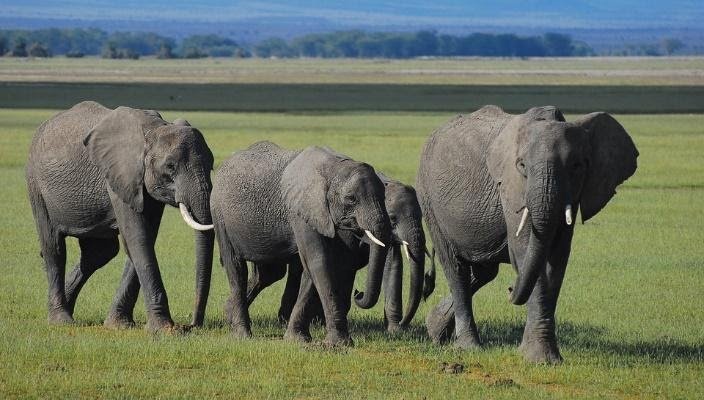As any woman will tell you, going for a Kenya safari is an exhilarating experience. However, packing your bags for it is one of the most daunting tasks.
That is more so when you are a first-time visitor, meeting people you have never met, whose cultures you are yet to encounter.
Some of the common misgivings you might have include whether you have packed adequately, what kinds of clothes to include or exclude, as well as what accessories to carry.
In equal measure, you may fret about what items your Kenya tour travel package is likely to cover. In the event that you have a momentary lapse and forget to include some toiletries, will it be possible to purchase substitutes?
Nonetheless, being the committed woman you are, you are not about to let packing (as unpleasant an exercise as it may be) dampen your spirits!
In celebration of that safari spirit in you, we have prepared a sum up of what you need to know when packing for a Kenya safari.
What to Wear
Kenya is a relatively liberal country when it comes to the dress code. Modest pants and dresses are a staple for most women.
However, when on safari, the time and places you plan to visit will heavily inform your choice of clothes.
For example, should you plan on going for the Great wildebeest migration in Maasai Mara, opt for comfortable, loose clothes. Also, go for tan and khaki colors as opposed to bold reds.
That is because warm colors make you stand out in the savannah, thus intimidating the animals.
In contrast, tans, greens, and khakis help you blend into the environment and take in all the animal action around you.
Hiking boots or sneakers are also essential when going into the wild. These will serve you well, particularly during walking safaris in the bush.
Since it can get a little chilly in the evenings, a light jacket and scarf should keep you warm.
Other items to include are sunglasses, a few t-shirts, and hats/caps to shield you during those game drives on sunny days.
Should your Kenya holiday itinerary include a visit to the Kenyan coast, remember to carry your favorite swimsuit and beach sandals as well.
Toiletries
Sanitary items are a personal choice, and it is thus more convenient that you carry your own instead of purchasing them on arrival.
That is primarily because you may not be assured of getting your preferred brands.
Face wipes and makeup remover wipes are essentials. When traveling in the Kenyan bush, it can get pretty dusty.
A quick cool wipe down can help keep things fresh on the go, even as you wait to take a shower at your lodge.
However, please note that most lodges provide shampoos, body washes, towels, and soaps, so you may not need to pack those.
Medications
It is always good to carry basic medications such as pain killers, antihistamines, antacids, and any prescribed drugs you may need.
Also, being a tropical country, Kenya is prone to malaria, and while not everyone is guaranteed to contract it, prevention is still the best alternative.
By visiting your physician, you will be able to get a prescribed dose of suitable anti-malaria medicine to prevent infection while on safari.
An insect or bug repellent cream will also help keep those pesky mosquitoes at bay in the evenings.
It is also a requirement for every foreigner visiting the country to get a yellow fever jab and have a certificate issued in this regard.
You can learn more details about the recommended medical precautions from reliable Kenyan safari consultants.
Gadgets
A safari in Kenya is only as good as the memories created during the trip. Therefore, any portable gadget that would make this dream a reality should make it into your luggage.
Here, note to include your binoculars, cameras, and tablets.
Binoculars will come in handy during wildlife viewing, while cameras will help you capture stunning images for posterity.
Along with these gadgets, remember to also include their respective batteries and charging ports. Other items worth packing include power banks and external memory cards.
On a Kenya tour, you might also wish to purchase souvenirs and curios, so an extra carrier bag would be a good idea to include in your luggage.
In line with this, please note that while credit and debit cards are an acceptable mode of payment in urban areas, most remote parts of the country work with cash.
Thus, it is a good idea to carry a little loose change in Kenyan currency for purposes of tipping and purchasing keepsakes.
Travel and Health Insurance
Travel and health insurance offer safeguards against any eventualities that may arise while on safari in Kenya.
While such occurrences are rare, it never hurts to be prepared.
Remember to pack your health and travel insurance documents along with your tickets and passport.
You must note to include other essential documents: the yellow fever certificate, COVID-19 clearance certificate, and your visa document.
Your Kenya vacation will also go splendidly well if you can interact with the locals using one or two words of Swahili (the national language). Consider having an English- Swahili pocket phrasebook for this purpose.
It will help you understand the menus and charm a few locals. We invite you to visit https://www.masaimarasafari.in/ and start planning your Masai safari.







